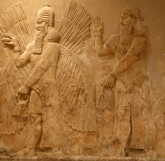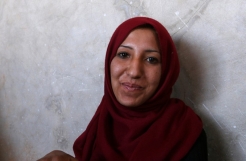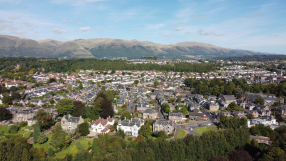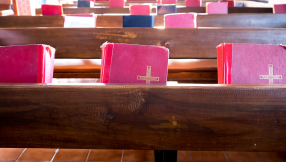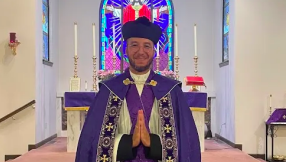A Syrian Christian who lived in ISIS-stronghold Raqqa has described the horror of living under militant rule.
John (name changed for protection), a student in his early 20s, recalled in an interview with persecution charity Open Doors the day that Raqqa was overrun by Islamic State on 13 January 2014.
"They were coming from Iraq with tanks, military vehicles, and even a big rocket that was at least five metres in length," he said. "It was very intimidating".
ISIS militants gathered together the church leaders in Raqqa and gave them the now infamous ultimatum levelled at Christians all over its self-proclaimed caliphate: flee, convert to Islam, or pay the 'jizya' tax for the right to remain in the city.
At the beginning of 2014 there were around 1,500 Christian families living in Raqqa. After ISIS took over, just 50 remained; the rest having chosen to flee.
John's family, forbidden from selling or renting their property and afraid of losing their business, decided to stay and pay the jizya, which was initially 54,000 Syrian pounds per man. Last year, that figure more than trebled.
Paying the tax meant they were free to live in Raqqa, but life under ISIS militants was brutal.
"I saw a lot of cruelties. Every Friday they execute people. I was there when they beheaded the first man in public. The man suffered, they couldn't behead him with the first cut. The man suffered so much they finally killed him with a gunshot," John said.
"I got really sick because of what they did with all the hundreds of soldiers of the base of the Syrian Army in Raqqa. They killed all the men and beheaded them. They pinned their heads on a long fence alongside a road I had to pass daily on my way to work. Almost all these soldiers were young men. Two of them were Christians. The men of IS hang their crosses on their ears when then put their heads on the fence. What shocked me too was that I saw people taking selfies with the heads of soldiers."
Militants also destroyed churches and Shia mosques. "One church building is now a centre for IS," John added. Without priests or other church leaders, the remaining Christians turned to one another for support. "We visited each other," he recalled.
But after more than a year of living under ISIS, John left Raqqa to continue his studies in another Syrian city.
"I might not have water and electricity every day as I did have in Raqqa, but I feel safer, inside I have peace. Where I am living now I don't have to be afraid of the people I meet in the streets," he said.
"The only thing that would help the people of Raqqa is if IS leaves the city. You could also pray for a solution for those who want to go out but don't want to lose all they have. Pray for the two or three Christian families who said they converted to Islam since IS came. Pray for those who want to stay because they don't want Raqqa to be empty of Christians."
Syrian regime troops mounted an offensive on Raqqa beginning 3 June, but have so far failed to liberate the city. The British-based monitoring group Syrian Observatory for Human Rights (SOHR) said at least 18 civilians, including six children, were killed in raids on 21 June.
SOHR said it was not able to verify who had carried out the strikes although another group said Russian warplanes were to blame, according to the BBC.










